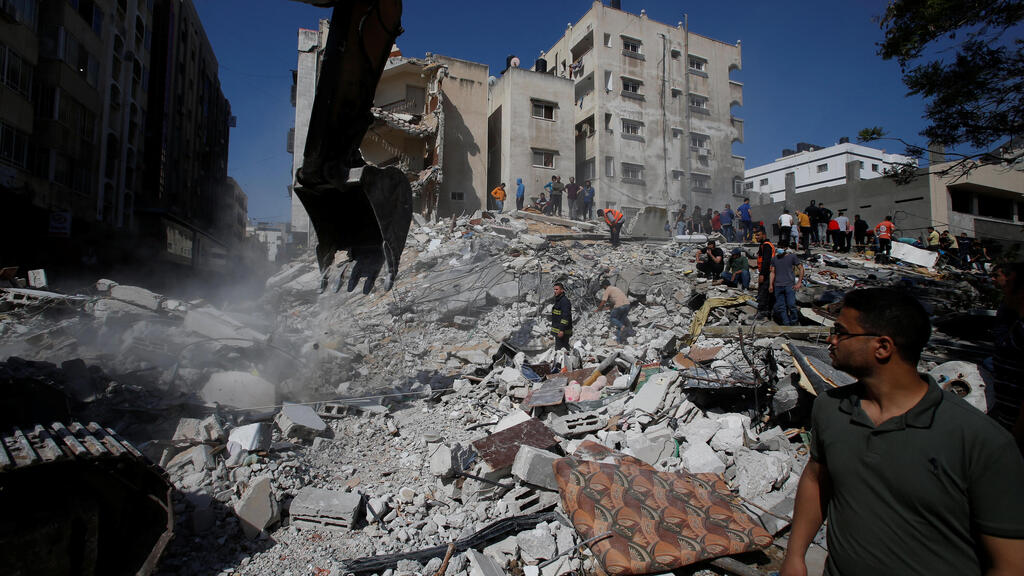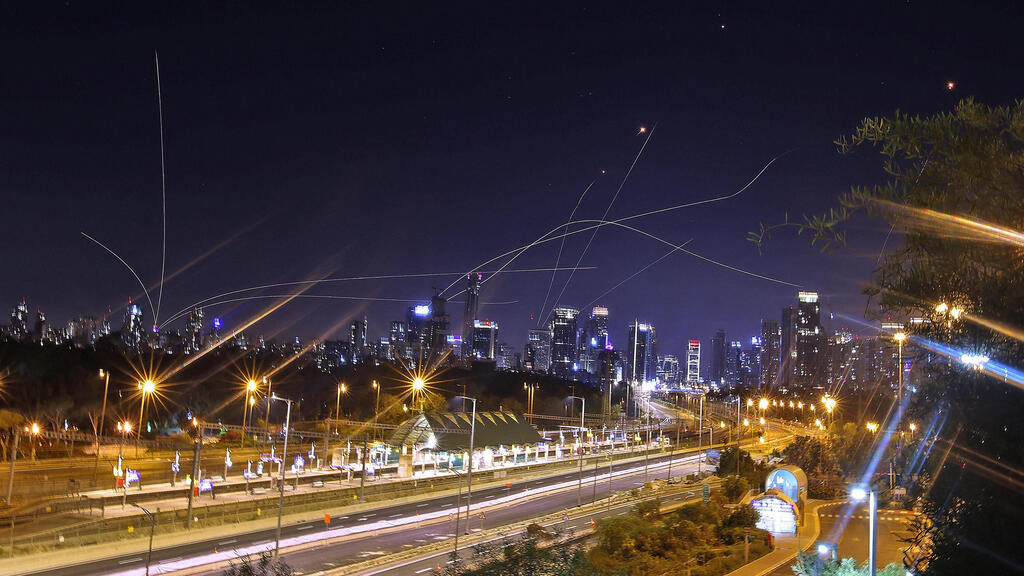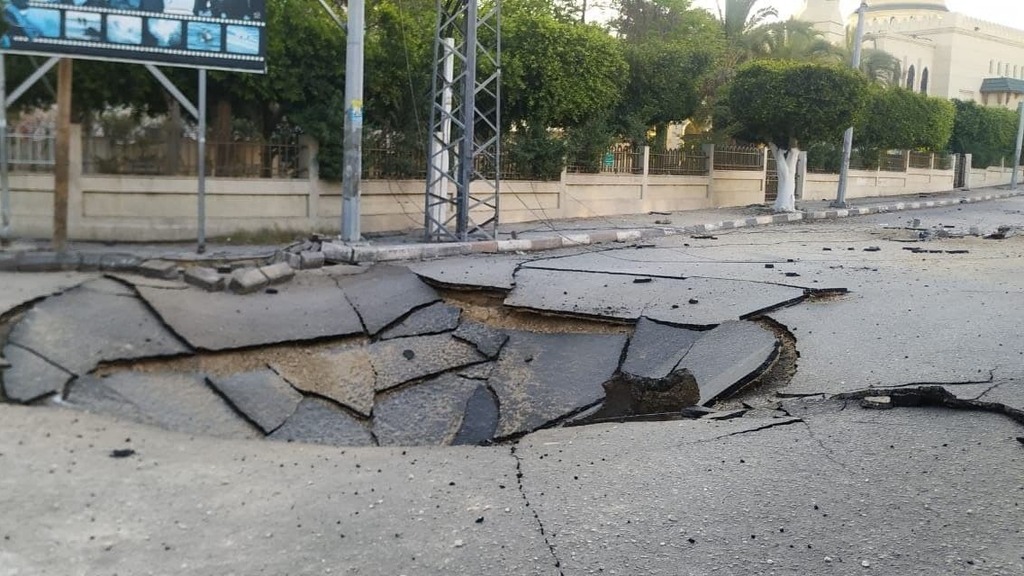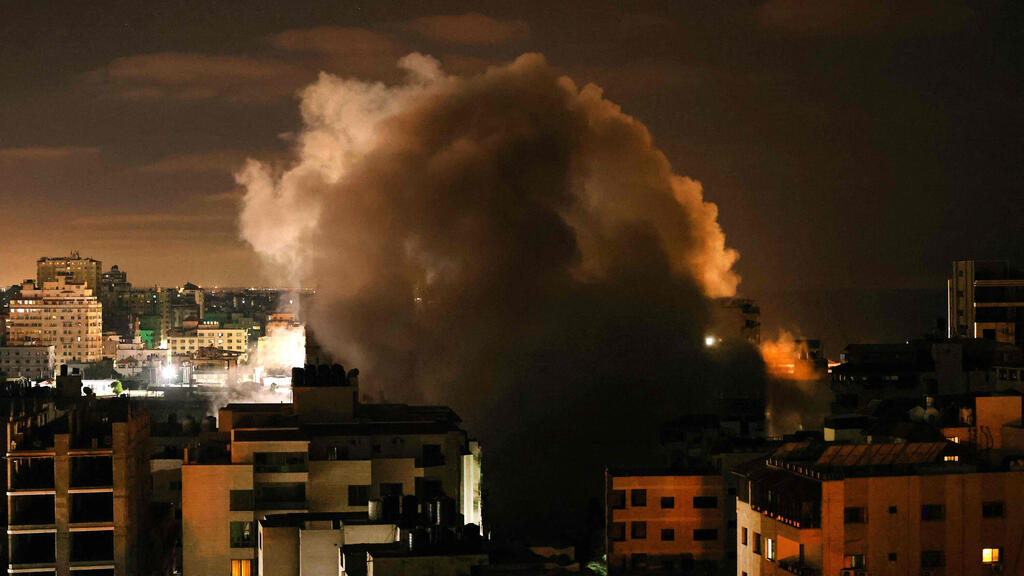Getting your Trinity Audio player ready...
Failing some mass casualty event either in Gaza or in Israel in the coming days, the fighting in the Strip will wind down by the middle of the week.
Israeli officials are already discussing the day after the battle, including the question of whether to assist the residents of the Strip - at least with gas supplies – to begin rebuilding after the fighting.
4 View gallery


Destruction caused by Israeli raids being cleared from Gaza's streets on Sunday
(Photo: Reuters)
Israel's leadership is eyeing the UN Security Council which was due to meet Sunday. If the international body reaches a "balanced" resolution that recognizes the country's right to defend itself, Jerusalem will find it easier to stop it firing.
If however the UN issues only condemnations, Israel will view such moves as one-sided and the fighting will continue for a while.
Hamas has for the past four days attempted to advance a ceasefire with the mediation of Egypt. Israel's military commanders are evaluating whether the damage to the Gaza factions and their infrastructure is sufficient to prevent them from future aggression.
Some have said that though that objective is near, two or three additional days of fighting would seal the deal.
Hamas can already laud its main achievement: The group succeeded in firing massive numbers of rockets at Israel despite the military's actions. Hamas has also rebranded itself the defender of the al-Aqsa Mosque and the champion of the Palestinian cause.
4 View gallery


Iron Dome missile defense system intercepts rockets fired from Gaza at Tel Aviv on Saturday night
(Photo: AFP)
But in terms of military gains, the group has had no major successes, not in attacks by drones and not in infiltration of Israeli territory through attack tunnels or from the sea, despite two attempts since the fighting broke out.
Dozens of Hamas operatives lost their lives when the Gaza attack tunnels were bombed and now the so-called "Metro," the miles-long underground system of burrows that allows the movement of fighters and weapons across the Strip, has been targeted again.
The Hamas naval force also came under Israeli attack and its commander was killed along with several of his fighters.
Israeli military officials believe the group will aim to achieve a significant win in the coming days, but this would be a perceived failure on Israel's part and delay any ceasefire.
The Israeli offensive was a long-time in the planning and was made up of many objectives.
One objective was to destroy the Metro, a move originally planned as a precursor to a ground offensive.
But once Hamas saw the IDF's ability to destroy the tunnels from the air, their strategic value decreased despite the hefty financial investment in their construction. Militants feared the tunnels would become a death trap and avoided them.
The military weighed the advantage of revealing its tunnel-busting weaponry even if the intent to kill hundreds of militants inside them was no longer feasible, but decided to go ahead with the plan because the tunnels were also being used to transport rockets to their launchers in various spots in the Strip.
Israel's security cabinet, which convened Sunday morning, could decide when to advance a ceasefire. The humanitarian crisis in the Strip after destruction of the enclave's infrastructure, with electricity and water in even shorter supply, could send Palestinian civilians to the Israeli border fence.
Military successes are motivation for politicians to end the fighting without agreeing to any Hamas preconditions, unlike in previous wars.
Israel will strive to prevent Hamas' future military build up and end the rocket fire. It will also demand international assurances that its missing soldiers and civilians held in the Strip will be returned.
But it is hard to believe these conditions will be met and with that in mind, Israel has some tough choices to make.
First published: 11:34, 05.16.21



